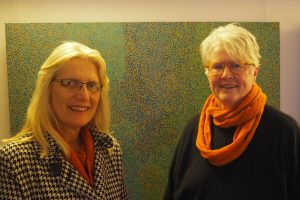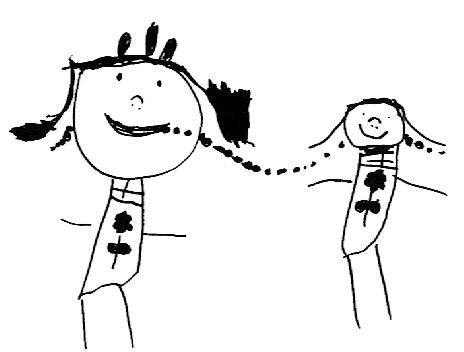
2021 Research Symposium
Landscapes of Relationships: Inspiration, exchange, and dialogue for the future of childhood
Dialogue Conference Room
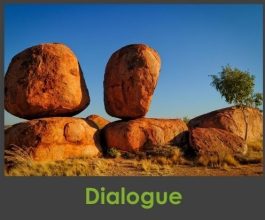
“We must recognise that dialogue is fundamental to all research and learning by adults and children and as educators our role is to see dialogue not only as an exchange but as a process of transformation. The multi-lingual dimension of dialogue gives strength to an increasing web of communication.” ~ Paola Cagalari: Reggio Children Teacher Educator Training, 2019. Dialogue allows a relationship of reciprocity where we can bring into play different points of view. |
Presentations and Speakers
Affective Pedagogical Relationships through Solidarity and Research Dialogue with Infant-toddler Educators
We draw from our recent book to share vibrant knowledge of affective infant-toddler (birth-to-three) pedagogy. Combining cultural-historical theory with visual methods, frames the pedagogical case examples.
Using contemporary pedagogical practices from infant-toddler contexts (e.g. nappy change, mealtimes and play), reveals the highly specialised nature of infant toddler educator’s work. Affective relations, in particular, responsive listening between educators (as teacher researchers) and infant-toddlers, promotes affective dialogue. Heightened pedagogical awareness comes through collaborative dialogue and positions infant-toddler educators as both effective and affective educators.
Our methodological research tools such as collaborative forums among the researchers and educators, inspired by Reggio Emilia values, use shared dialogue around video observation, images and drawing, to provoke sensitive reflection and research between researchers and educators. This shapes the partnerships between educators and researchers to enhance and cultivate scholarly dialogue, thus creating research-based pedagogy for advancing infant-toddler education.
Dr Avis Ridgway, Dr Gloria Quinones and Dr Liang Li
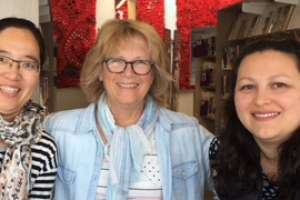
Infants’ encounters with curriculum
Much has been written about affording young children (including infants) rights to participate in matters that affect them. In particular, most curriculum guides—including the Early Years Learning Framework—reflect contemporary images of children as powerful learners, capable of contributing to their own and others’ learning. While there are many examples in the literature of participatory approaches to curriculum for older preschool children, there is less written about how we might see and act on these capacities with the youngest children.
This session considers the experiences of infants as they encounter curriculum in their early childhood settings. We will explore Levinas’ idea of the ‘benediction’ as an invitation to the curriculum encounter. These invitations will be the basis for reconsidering infants’ capacities to be seen as agents and protagonists in their curriculum encounters. We will explore how we can tune in to infants’ interests, ideas and motivations for learning, to enrich our relational pedagogies in working alongside the youngest children.
Dr Sandra Cheeseman

Pathways to participation - one parent’s story of research
The importance of strong collaborations with families and early childhood settings is often cited as the cornerstone of thriving centres but what does this look and feel like? How could we evaluate this important and impactful collaboration? Kristen Hobby offers a unique insight into her journey from first entering an Early learning Centre (ELC) as a parent and finding her place in the community, the experience of participation through to research partner as she embarked on her PhD at the centre exploring the lived experiences of young children in the great outdoors.
During this presentation, Kristen will share her personal story, and how she was welcomed in the centre. She will delve into what she connected with and uncovered about Reggio Emilia philosophies, documentation and the image of the child and how this informed, transformed and often challenged her as a parent. Kristen will also outline how the centre supported her research in a myriad of ways over her eight year PhD journey. While Kristen’s perspective may be unique, there is much to be gleamed from her story that can inform the collaborative partnership between families and centres.
Dr Kristen Hobby

Democratic pedagogy as a ‘circular movement in the mind of the teacher and the child’
Claudia Gudicci President of Reggio Children discusses the importance of building different contexts and the care in how the inter-connectedness and beauty of the languages in the space is not improvised, rather very specific work of the teacher.
The notion of planning being completely reliant on ‘the child’s interest’ has become more and more common across ECEC. But what is a child’s interest really and why is it on the child to be the sole creator of the curriculum? What level of decision making can an educator have or should have when intentionally planning?
The team at Rosie’s Early Learning have been collating research over many years through combining teacher led research and children’s emerging play to genuinely document and understand the competency of a child. This action research has identified that a democratic pedagogy is the circular movement in the minds of educators as researchers to observe, document and renovate pedagogy whilst re-launching a deep dive of curiosity with the children. Far greater than solely what a child is interested in.
Influenced and underpinned by multiple educational theories and approaches, educators will be engaged in deep critical reflection on how to practice decisions influence pedagogical strategies for educators within kindergarten/preschool; LDC and FDC.
Carrie Rose
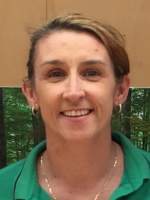
Layers of research: in a Primary School
At Cannon Hill State School In Brisbane we created a research culture with the help of our learning from Reggio Emilia. Teacher and parent research led us to Reggio and having started to engage, we then learnt to research through documentation and reflection on our observations of children’s thinking. In this session we will discuss how we made a start, what happened and what we learnt along the way.
Chris Ling & Joy Pohlner
